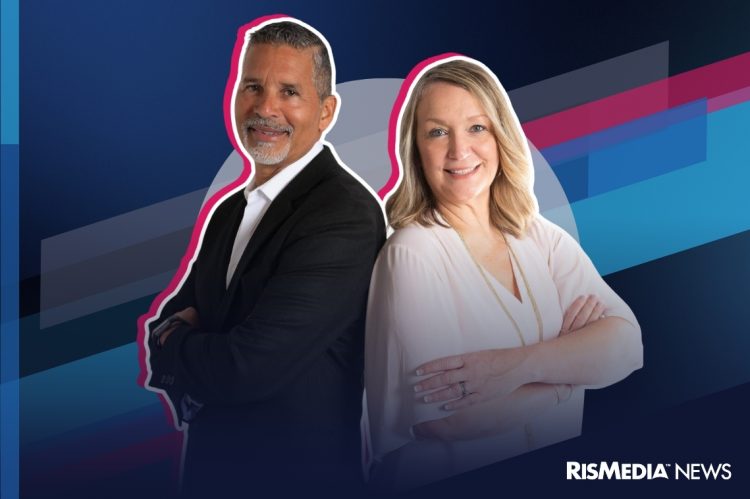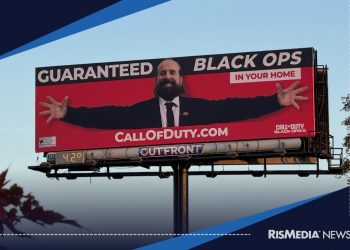Above, John and Liz Torres
When a company is recognized for being one of the largest and fastest-growing franchise organizations in the country for eight straight years, it’s clearly doing something right. Or, actually, a whole heck of a lot right.
United Real Estate, which has experienced an astounding 727% five-year growth rate, and is the largest flat-fee brokerage by transaction count, both according to Franchise Times, is clearly going great guns. As is usually the case, it’s the rank and file who make it so.
Liz and John Torres, agents with United | Chicago and CRR Fort Lauderdale, were recently featured in United News, an internal newsletter sent each Thursday to company broker/owners, agents and staff. Against the backdrop of industry-wide policy changes, they focused on best practices for navigating buyer agency.
Buyer consultation. The Torres’ suggest using a buyer questionnaire during initial consultations to build rapport and trust by focusing on the buyer’s wants—their dream home, concerns and must-haves. Start a dialogue to build the relationship. They ask all prospective clients the same questions. “A standard operating procedure for your buyer consultations helps the presentation become second nature,” explains Liz.
They prefer in-person meetings, but for out-of-towners, they start with a phone conversation before transitioning to a virtual consultation, coming prepared with all necessary documents and buyer resources.
During the consultation, they encourage open dialogue rather than a sales pitch. “It’s about creating a relationship,” Liz says. They make it clear that everything is negotiable and take the time to explain the importance of the Buyer Agency agreement. This is framed as a mutual commitment, setting expectations from the very beginning.
Presenting the buyer agreement. Liz and John emphasize that the Buyer Agency Agreement presents an opportunity to differentiate yourself and communicate your value as a real estate professional. John believes confidence during the consultation is key.
“You have to own the buyer consultation,” he says. “You have to be confident and believe 100% in your value, explaining that ‘This is my fee, and if you don’t feel comfortable signing an agreement, you don’t have to. I want to work with you, but this is required by law.’ Treat it as seriously as you would going into any other important agreement. It raises the standard for the transaction.”
“We tell them we are working for them from the beginning of their search until after they have the key,” Liz adds.
They outline the work they will perform in exchange for their fee, such as gathering necessary paperwork, performing due diligence on the property, examining comps and negotiating for the client’s best interests.
After presenting the agreement, they leave the document with buyers to review if they are not comfortable signing, maintaining an open line of communication until a decision is made.
“Follow up to stay top of mind but nudge gently; don’t be pushy,” Liz advises.
Addressing objections. Creating a strong relationship can help remove hesitations buyers may have about signing the agreement. Liz and John remind clients that this new requirement enhances their purchasing experience and underlines their commitment to the transaction. Identifying serious buyers saves time.
For buyers unfamiliar with the recent changes, they clarify that while they are requesting payment of fees, the buyers remain in control of the payment process.
“They know their responsibility, so there are no surprises later in the transaction,” John says, ensuring buyers are informed and secure in their decisions. “We convey that a home purchase is so important that it deserves an agreement. A Buyer’s Agreement enhances the buying experience and raises the level of their importance and yours.”
In a conversation with RISMedia, the Torres’ touch on the importance of continuous training and education for agents, especially with frequent changes in forms and regulations. Their brokerage has provided a mandatory training for agents on the changes, which has been well-received, especially as the requirements and forms were frequently evolving.
“Brokerage wise, we’ve had training with our broker, with our local association and with our state association,” says Liz. “Those three are very important. The brokerage training is important because as an office we have to follow certain policies. Some of the training is in clarifying and helping to effectively answer questions about the buyer broker agreement. And the National Association of REALTORS® has resources for us and training and courses that we’ve taken that have helped.”
John relates that while training seminars are mandatory, agents are universally happy to attend, understanding that the new normal post-Burnett has a lot of requirements they need to know and be able to explain to clients.
“Everyone is eager to get a good grasp on what the changes are, because in the beginning, every week there was something changed, especially in our Florida forms,” he says. “If you’re open-minded, you won’t get stuck. The ones resisting seem to have more of a problem understanding that things have changed.”
A crucial aspect that has changed, according to Liz and John, is to make sure clients know that everything is negotiable.
“We let them know that upfront to put them at ease,” says Liz. “Nothing is set in stone; they are in charge. If they don’t like any part of the buyer agent contract, they don’t have to sign on the dotted line. I feel that helps.”












